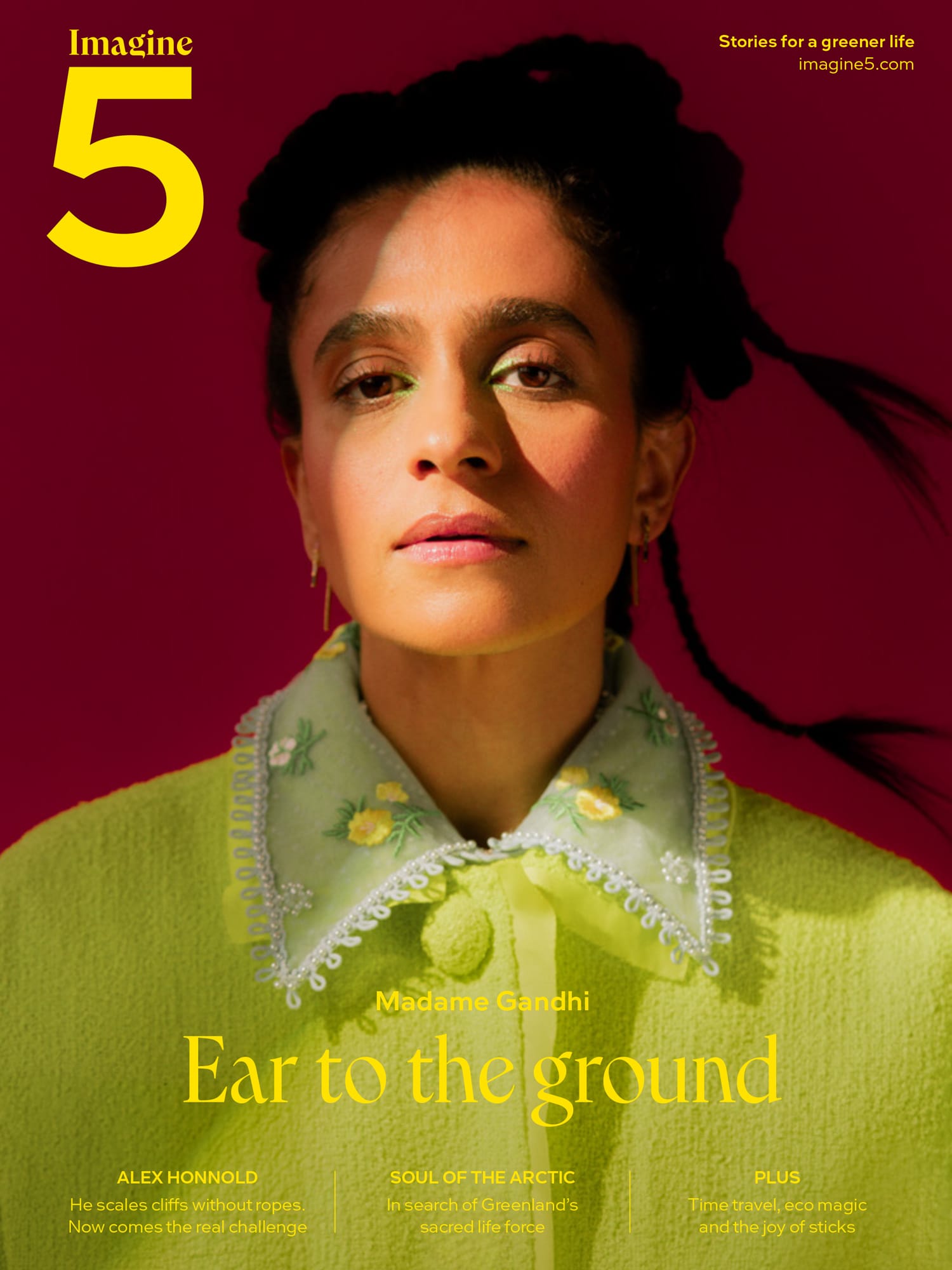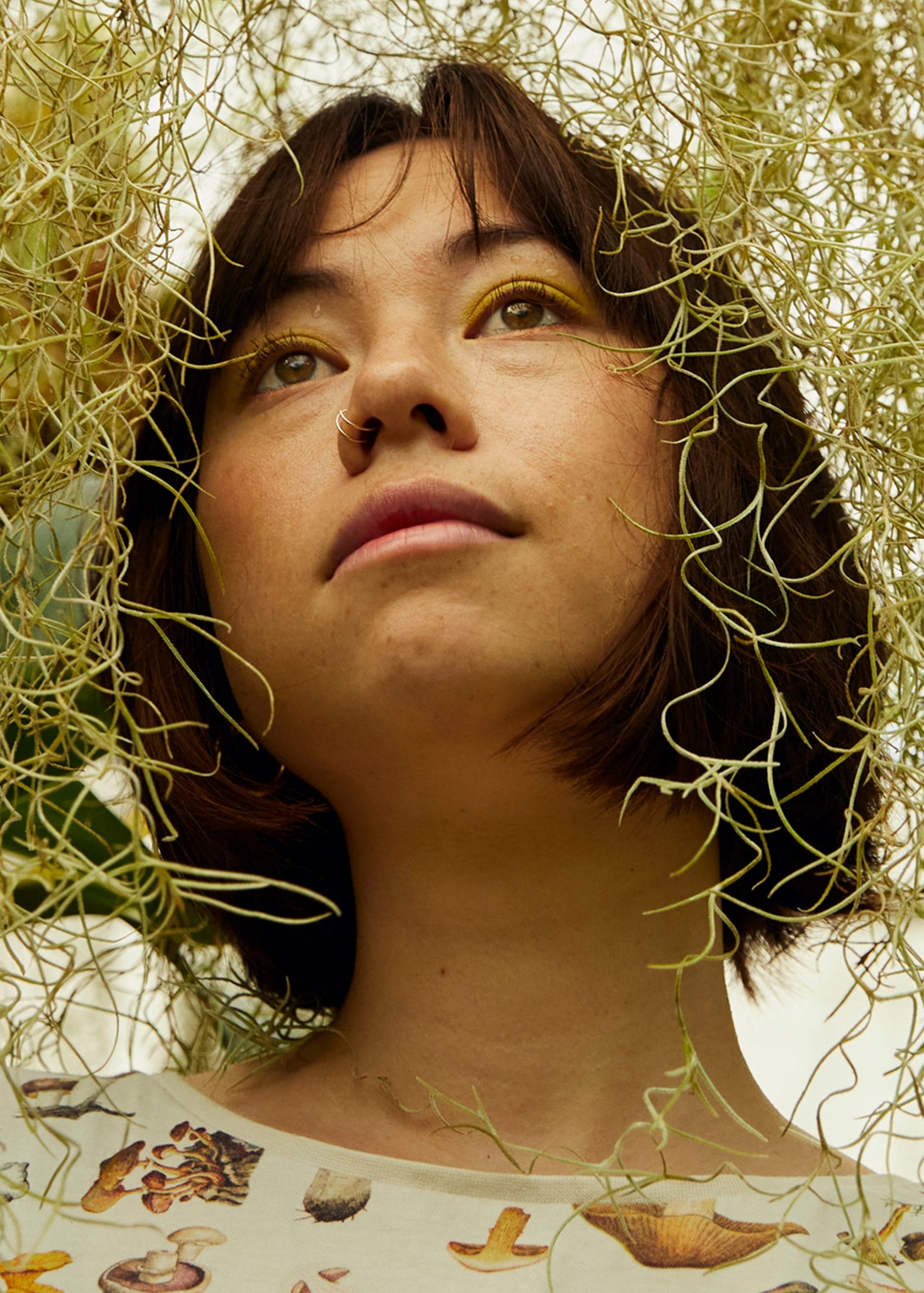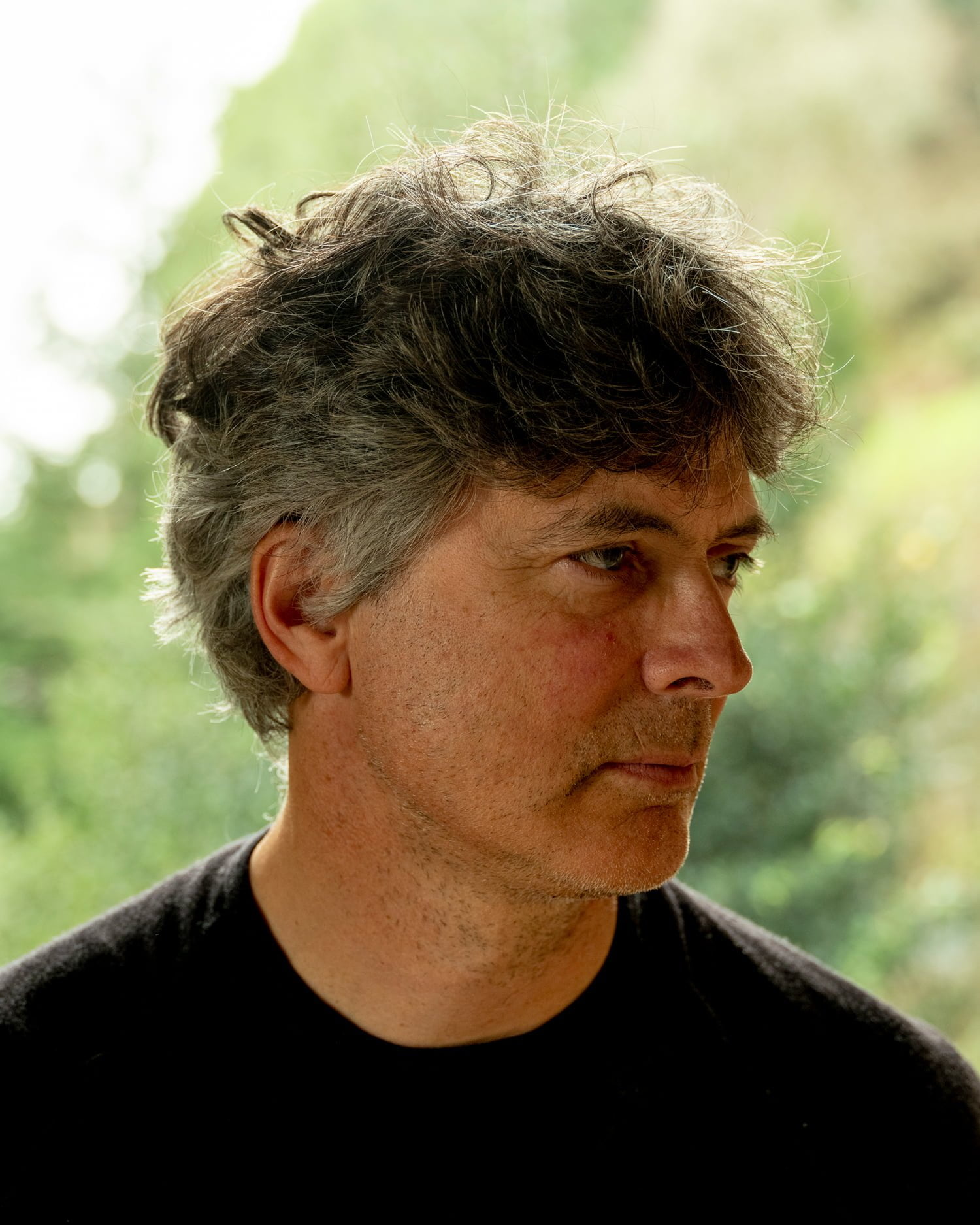At the summer Olympics in Tokyo in 2021, Melissa Humana-Paredes knew she wasn’t the only athlete feeling the heat. So why was no one talking about the reasons why? The experience spurred the Canadian beach volleyballer to join forces with other sportspeople raising their voices on climate change.
It’s late morning in Hermosa Beach – the coastal fog is beginning to lift, the morning surf session is coming to a close, and Melissa Humana-Paredes has already been working out for hours. This was a conditioning day for the Olympian: for an intense hour and a half, she was diving in the sand, getting up, hitting balls and then diving again. Forty-five seconds of full-out effort followed by a short respite, and then intensity again. She wears a heart monitor to make sure she’s hitting her max. Mornings in the sand, afternoons in the gym, an unending tide of physical exertion and intentional recovery.
That kind of all-out passion has fueled Paredes to two Olympic Games and a silver medal. It also has taken her in a new direction: to advocate for sustainability in sports as an “eco athlete”.
At the 2021 Olympics in Tokyo, Humana-Paredes was focused on competing, but she was also noticing the heat. It was the hottest Olympics ever recorded, with temperatures reaching 95℉ (35℃). “It was dangerous,” she recalls.
She noticed that the conversation among athletes, coaches and others involved in the games was limited to how to deal with the heat. “Our strength coaches, our nutritionists, dieticians, all of the sports science teams were having a whole conversation about how to ensure we’re cooling our inner core temperatures, that we’re staying hydrated, that we can withstand the heat,” she says. “And no one was really questioning, is it safe for the athletes to even be playing in heat?”

The conversations started to grate on her mind, making a groove every time someone skipped over the bigger picture, she says. “No one was really questioning why it was happening – it was just: this is what we have to do to survive,” she says. “It really hit me, like, the climate crisis or climate change is really affecting sports, especially outdoor sports.”
The experience changed her. After the Tokyo Olympics, she started seeing sports through a climate lens – winter athletes were losing their snow, while summer athletes struggled to play in blinding temperatures. The causes of climate change, and the potent remedies, just weren’t part of the game. And she wanted to change that.
In some ways, Humana-Paredes was born to be an Olympian. The 32-year old grew up in Toronto, Canada, the daughter of Chilean immigrants. Her father played indoor volleyball for the Chilean national team when he was in his twenties, and her mother was a dancer for the country’s folkloric ballet company. When the Pinochet dictatorship forced her father’s family to flee, he ended up in Canada – trying to stay connected to the volleyball community. Through his contacts, he met a team looking for a coach in beach volleyball, a sport he thought he’d left behind.

Humana-Paredes’ ambitions extend well beyond the volleyball court. Photo: Tracy Nguyen
That’s how Humana-Paredes ended up attending the 1996 Atlanta Olympics as a three-year-old. The duo her dad was coaching ended up winning a bronze medal. Her father went to a few more Olympics as a coach throughout her childhood, she says. “He did an incredible job keeping my brother and me in the loop of what the Olympic experience was all about, even though we were quite young.”
She grew up playing volleyball both indoors and on the beach, but it was the beach version that captured her heart, and by the time she was 16, she was competing in international tournaments. Playing in the elements – the sun, the sand, the breeze, the salt, the outdoor temperatures – brings an energy and unpredictability to the game, she says. “You’re kind of on your toes, and you have to expect the unexpected, and you just show up and you’re ready to play in whatever conditions you can, and it changes the game.”
There’s also a more intense level of trust between players, because beach volleyball is played in teams of two, as opposed to six in the indoor variety. Your only teammate needs to be a “ride-or-die person”, Humana-Paredes says. Since 2022 that person has been Brandie Wilkerson, with whom Humana-Paredes won silver at the 2024 Olympics in Paris.
The game also breeds independence: when there’s only two of you on a team, nobody’s the boss. Players have wide freedom to pick how to train, when they want to train, and with whom to train, whereas in indoor volleyball, a coach or team manager would make those decisions.
That sense of agency and purpose helped Humana-Paredes as she started asking questions after the Tokyo Olympic games. She started sparking conversations with other athletes and doing research on how the high temperatures impacted athletes across sports. The gold medal women’s soccer match had to be rescheduled because it was too hot to play, and the marathon was relocated hundreds of miles north from Tokyo to the cooler climes of Sapporo.
That’s how she ultimately got connected to EcoAthletes, a group of athletes working to take the lead on climate action, with the help of academics, climate scientists and entrepreneurs. The group clicked with her right away – she suddenly realized there were others asking similar questions. “I found myself in this community of very thoughtful, like-minded athletes who cared for sport, who were still working super hard – but also cared about how this was affecting not just sports, but everyone else.”
“You don’t have to be perfect. Imperfect advocacy is exactly what we need right now”

Now, she has deepened her commitment to the environment. Athletes fly all over the world, but Humana-Paredes works with the organizing committees to try to cluster tournaments, so people aren’t flying so often. She is also transparent about her own carbon footprint, and she speaks out against fossil fuel companies underwriting major sports events.
Sports affect the environment in a number of ways – from the water required for golf courses and cricket pitches to snow and ice needed for downhill skiing. But the biggest contributor is emissions from flying, for spectators and for athletes. The global sports industry is responsible for 300-350 million tons of carbon dioxide, according to an analysis by the Rapid Transition Alliance.
On her social media, Humana-Paredes breaks down her own carbon emissions – mostly from flying across the globe – and outlines the steps she takes to address them. Her goal, she says, is to be a carbon-neutral athlete. Athletes can be scared about speaking up for the environment, because they get called hypocritical. But Humana-Paredes has a message for them: “You don’t have to be perfect,” she says. “Imperfect advocacy is exactly what we need right now, because there’s no such thing as perfect.”
It’s a message that is starting to resonate with fans and other athletes. She sees the community of like-minded people growing, and she’s also keen to reach outside the bubble of those who are already invested in environmental issues to reach something more vital: the regular sports fan. She says she receives messages on social media often from people who had never thought of the impact of sustainability in sports before. “It’s really rewarding to see and feel those comments, because you do feel like if you’re helping one person realize that this is urgent, that this is dire, that we need to start thinking about our habits differently, it makes all the difference.”
She’s weaving sustainability into the sand and sport, and looking forward to the next Olympic Games – likely her final. Every year, every chance she has, feels like her last and she just really wants to cherish it, she says. “I think it just brings me perspective, different perspective, to this journey, and a lot more meaning.”

Humana-Paredes expects the next Olympics to be her last as a competitor. Photo: Oscar J. Barroso/Europa Press via Getty Images
Out on the sand, she can sometimes fall into a flow state, something that feels almost like a rhythmic dance with her partner. Everything around starts to blur, except the tunnel of vision right in front of her. It’s a psychedelic experience – being able to see the future, and feel the right moves. “It just feels like… you’re one step ahead of what your opponents are gonna do,” she says. “You’re one with the ball and the movement of the court and the rhythm of the court.”
In the future, she may take that flow state into her next career. When she retires from her sport, she is considering returning to school for a master’s in sustainability. Today, when she’s not competing around the world, her homebase is Victoria, Canada – one of the most sustainable cities in North America. Her sense of hope for the future comes from seeing communities – and especially younger generations – stand up for the Earth. “I encourage anyone who kind of feels a little discouraged or a little heavy by all the news around the world, to immerse yourself in community,” she says. “Finding small groups here and there that have like-minded thinkers and realize you’re not alone.”

Cover star Madame Gandhi on the sounds of the Antarctic, free climber Alex Honnold reveals his biggest challenge yet, actor Rainn Wilson embraces his soulful side and much much more!
SPORTS FOR CLIMATE
INTERVIEWS















